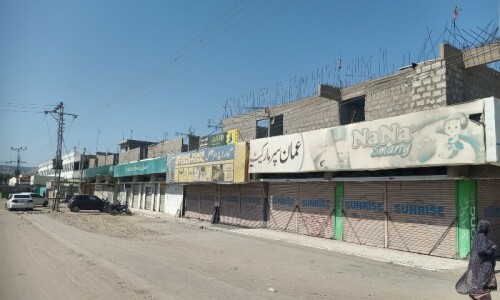KARACHI: The Indus Motor Company’s (IMC) board of directors has approved an additional investment of Rs 1.1 billion to further localise parts and components for its existing vehicle lineup.
With this fresh investment, the total allocation for the localisation project has reached Rs4.1bn, the company said in a stock exchange filing on Monday. The company aims to complete this investment by the first quarter of 2026.
IMC stated that this initiative is part of its overall strategy to increase the localisation of parts and components in vehicles manufactured locally. The goal is to reduce foreign exchange outflows, boost the local parts industry, generate employment and contribute to the national economy.
The company said the investment would be directed towards expenditure in plant and machinery, moulds, dies, equipment and other related expenses necessary for the localisation of parts and components for various existing vehicles.
Move aimed at curbing forex outflows, boosting local parts industry, creating jobs
In the previous financial year (FY24), the company’s net sales turnover declined by 14pc to Rs152.48bn compared to Rs 177.71bn in FY23, primarily due to a drop in sales volumes.
However, the company managed to increase its profit after tax (PAT) by 36pc, rising to Rs15.07bn from Rs9.66bn, largely due to reduced input material costs resulting from favourable exchange rate movements, cost-cutting measures and increased localisation.
During FY24, the company also launched the country’s first locally manufactured hybrid electric vehicle, the Toyota Corolla Cross, which features the highest-ever level of localised content. This achievement significantly contributed to the company’s positive financial performance. Additionally, returns on deposits and investments remained a sizeable part of the company’s profits owing to higher interest rates.
IMC’s CEO, Ali Asghar Jamali, said that this year has been marked by significant progress in improving the trade balance, reducing imports and curbing inflation towards the year’s end. The company has faced a series of economic challenges, including persistent inflation, high interest costs and reduced consumer purchasing power. In response, it implemented aggressive productivity improvements and adjusted its sales mix to align with market demand, particularly emphasising the localisation of hybrid electric vehicles.
To increase localisation, the IMC’s board of directors has approved an investment of Rs4bn over the past 12 months to develop local parts and advance the ‘Make in Pakistan’ initiative, he said.
He urged the government to create a supportive environment that fosters growth and localisation within the automotive sector, besides enabling the industry to operate at full manufacturing capacity and implementing tax reductions to improve affordability of products and also safeguarding the jobs of over 2.5 million direct and indirect workers in the auto sector.
The board also announced a final dividend of Rs43 per share, bringing the annual dividend for the year to Rs114.70 per share.
Published in Dawn, September 3rd, 2024














































